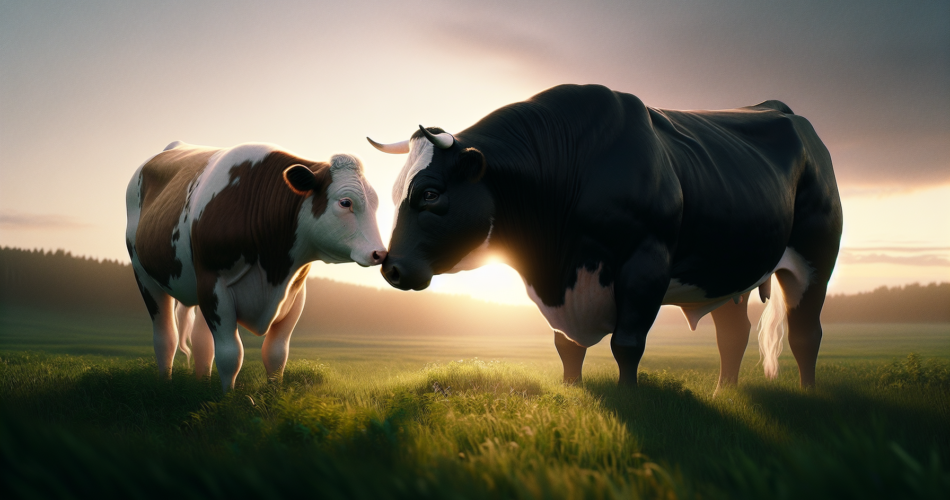Cows have long been perceived as simple farm animals primarily valued for their contribution to agriculture. However, recent studies have revealed a more complex emotional world inhabited by these creatures, highlighting their capacity for forming strong bonds and exhibiting stress in response to separation. Understanding the emotional intelligence of cows not only enriches our view of their behavior but also underscores the ethical implications of their treatment in farming practices. As the world becomes increasingly aware of animal welfare, recognizing the emotional needs of cows becomes paramount.
The Emotional Intelligence of Cows: Understanding Their Bonds
Cows are social animals that naturally form intricate relationships within their herds. Research has shown that cows possess social preferences and exhibit behaviors indicative of emotional connections, similar to those found in more commonly recognized emotionally intelligent species. They tend to form close bonds with specific individuals, often spending significant time grooming and interacting with one another. This emotional network facilitates communication and cooperation, which are essential for the cohesion and stability of their social structure.
The ability of cows to recognize and remember their companions plays a crucial role in their emotional well-being. Studies suggest that cows can differentiate between familiar and unfamiliar individuals, both human and bovine. This recognition is vital, as it allows cows to navigate their social environment effectively. Furthermore, when cows are allowed to engage in social bonding, they are observed to display behaviors such as vocalizing, resting together, and even engaging in playful activities, all indicative of their emotional depth.
Moreover, the bonds formed among cows extend beyond mere companionship; they are integral to their survival instincts. In the wild, social groups can provide protection against predators, access to resources, and the sharing of knowledge regarding food and water sources. In domestic settings, these bonds can significantly impact their overall health and productivity. Thus, acknowledging the emotional intelligence of cows not only enhances our understanding of their behavior but also raises questions regarding their treatment in agricultural practices.
Stress Responses in Cows: The Impact of Separation from Herds
Research indicates that separation from their herd can induce significant stress in cows, leading to both physiological and psychological repercussions. When cows are removed from their familiar social groups, they often exhibit signs of anxiety, including vocalizations, increased heart rates, and changes in feeding behavior. These reactions are not trivial; they reveal a deep-rooted instinct to remain connected to their companions, highlighting the importance of social structures in their lives.
The stress experienced by cows due to separation can have lasting consequences, not only for their emotional state but also for their physical health. Elevated stress levels can compromise their immune systems, making them more susceptible to illness and reducing overall productivity, including milk production. Furthermore, cows that undergo frequent separations may develop chronic stress responses, which can lead to long-term behavioral changes and a decline in welfare. This raises ethical concerns regarding farming practices that prioritize productivity over animal well-being.
Understanding the stress responses of cows when separated from their herds is crucial for developing more humane farming practices. Implementing strategies to minimize separation and allowing cows to maintain their social bonds can significantly enhance their welfare and overall quality of life. As consumers become more aware of animal welfare issues, it is imperative that the agricultural industry adapts to meet these growing concerns, ensuring that cows are treated with the compassion and respect they deserve.
The emotional intelligence of cows is a testament to their complex social structures and the importance of their bonds. Recognizing that cows experience stress when separated from their herds challenges traditional views of animal farming and underscores the need for a reevaluation of practices that impact their welfare. As society continues to evolve, embracing a more compassionate approach towards the treatment of cows will not only improve their lives but also align agricultural practices with ethical standards expected by consumers today. Understanding and honoring the emotional lives of cows is not merely a moral obligation; it is essential for fostering a sustainable and humane agricultural future.

